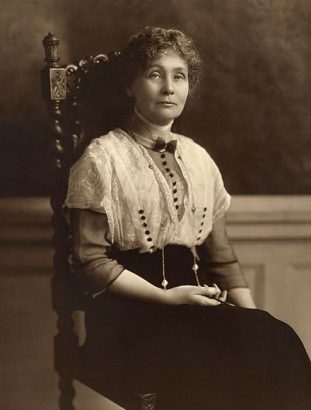 MLF Chapter & Verse
MLF Chapter & Verse
The Manchester Literature Festival Blog
Review: Radical Literature Walking Tour
Our Manchester Radical Literature Walking Tour reviewed by Young Digital Reporter Gabriella Tavini
While the sun set beneath the rose coloured clouds in a surprisingly striking Mancunian skyline, a party of around fifty eager tour-goers gathered outside Manchester Cathedral. The tour had sold out and everyone was wrapped in great wooly scarfs and silence, poised attentively facing our guide.
Although Manchester Radical Literature Walking Tour had advertised it would be guided by Jonathan Schofield, Editor of Manchester Books Limited and Manchester Confidential, he was unable to host the event personally. In his place, was the eloquent Sue McCarthy, who proved to be a charming substitute for Jonathan.
Sue played the part of gracious “Time Lord,” rewinding to the late 1700s. We explored the perilous life of the English abolitionist, Thomas Clarkson, who was leading campaigner against the slave trade during the British Empire. After escaping death by assassination on more than one occasion, Clarkson made a famous speech, galvanising anti-slavery campaigns in the city at the exquisite Cathedral of Manchester on the 28th October 1787.
Next, we moved forward in time to 1840s Manchester, where Friederich Engels and Karl Marx frequented Chetham’s Library gathering research for what would turn out to be The Communist Manifesto. In the same decade, Charles Dickens took a trip to Manchester. After witnessing poor factory conditions, he was determined to complete the manuscript for an idea that had been percolating in his mind for a long time. This classic was to be called, A Christmas Carol.
Fast-forward to 1903 when Manchester Native, Emmeline Pankhurst became leader of the British suffragette movement. Pankhurst gained a fierce reputation, encouraging militant tactics to help women win the vote: “You have to make more noise than anybody else, you have to make yourself more obtrusive than anybody else, you have to fill all the papers more than anybody else, in fact you have to be there all the time and see that they do not snow you under.”
Other radicals mentioned included social reformer Disraeli, Opium-eater Thomas de Quincey, Winston Churchill, and Elizabeth Gaskell.
Wandering the city streets without the rushed intent to reach a final destination is a rarity. Manchester Radical Literature Walking Tour was not just about becoming knowledgeable of Manchester’s remarkable historical narrative; it was an immersive experience of the city. While the wild street graffiti and soulful buskers exhibited the flourishing artistic culture that has always emanated from the city’s core, underneath the veil of its creative Northern glory, Manchester’s homeless demonstrate that their is still much needed for social reform.
Gabriela Tavini is a Young Digital Reporter at Manchester Literature Festival
Image: Emmeline Pankhurst via Wikimedia commons
